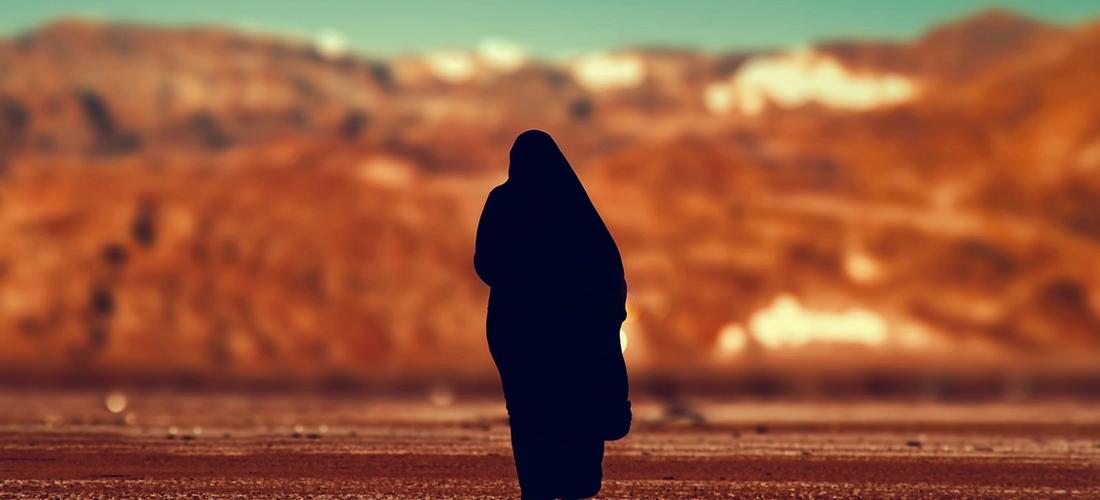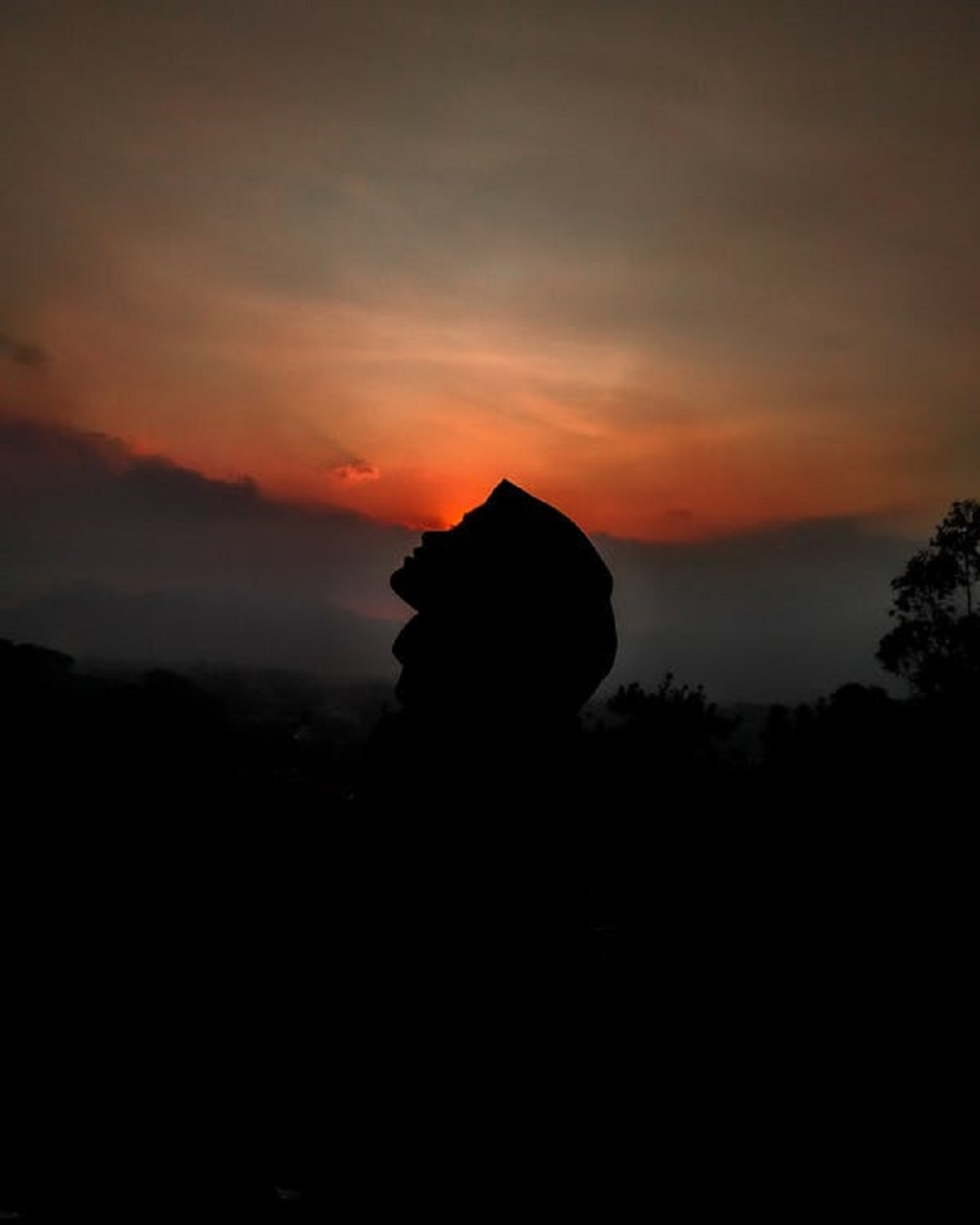Hijab Bans, Feeling Isolated and Drawing Strength & Self-Determination From the Story of Hajar (ra)
Current Events
|
May 31, 2023
|
4 MIN READ

Image source: Pexels
The right to wear hijab continues to be questioned, legislated against and fought for within the U.S. and around the world. Women continue to be stripped, literally or otherwise, of our dignity and right to self-determination. Instead, we are reduced to what society deems acceptable attire, presentation or behavior.
(Read about 10 Muslim women athletes who refused to take no for an answer when it came to their right to wear hijab and modest dress.)
Muslims will soon celebrate my favorite holiday – Eid ul-Adha. Islamic history relates that God ordered the Prophet Ibrahim (as) to take his wife Hajar (ra) and their son Ismail (as) to the deserts of Arabia and leave them behind. As he walked away, Hajar (ra) grappled with her future. Here she was in a barren wasteland. No food, no water. She asked why her husband was leaving her and their son isolated? As he turned away, feeling the struggle of her question, she realized the answer and offered, “Has God ordered you to do so?”
He affirmed. And with that, he was gone and she was alone.
Bilqis Abdul-Qaadir wearing the FlexFit hijab from the HH Sport Collection, image source: Haute Hijab.
Fast forward some 4,000 years, women in general and Muslim women in particular find themselves in a proverbial desert of isolation. Our headlines are saturated with reductionist conversations policing women’s bodies – particularly what we are wearing.
Muslim women are not unique in this regard. For centuries, women have been viewed through these lenses. In the modern context, whether it is powerhouses like Michelle Obama, Serena Williams, Kate Middleton or Bilqis Abdul-Qaadir, society focuses more on their clothing rather than their educations, careers, athletic prowess and family lives.
It is long overdue for us to reclaim our narratives and not fall prey to the box that people – read: men – tend to force us in to. In an era of increasing anti-Muslim sentiment, this is particularly true for Muslim women.
Getting back to the story of Eid ul-Adha and Hajar (ra) – this incredibly strong woman of faith and conviction is the picture of resilience the world needs today. Many mistake Hajar’s (ra) story as one of isolation, when in reality it is a story of self-determination.
Hajar (fra) had a choice – capitulate or write her own narrative. She chose the latter and began to search for sustenance for herself and her infant son, running between two hills of Safa and Marwa. Hungry, thirsty, and desperate she knew that against all odds, God would provide for her. Remarkably, a stream appeared at her son’s feet, with water that flows till this day –it was the stream of Zam Zam.
They had sustenance. God had provided for them. Here was a woman who did not give up on herself, her son or on hope. Till this day, millions of Muslims travel to Makkah annually to partake in the ritual pilgrimage of Hajj and Umrah.
During this pilgrimage, one of the required rituals is to run between the hills of Safa and Marwa, commemorating Hajar’s (ra) struggle, faith and resilience. This commemoration is repeated during the greater pilgrimage of Hajj – the conclusion of which is the celebration of Eid ul-Adha. Today, thousands of years after Hajar’s fateful day in the desert, Muslims worldwide remember one woman’s struggle and her perseverance in the face of utter desolation.

Image source: Unsplash
This is why Eid ul-Adha is my favorite holiday. It underscores the value of a woman’s self-determination and her faith in God above all else. Islamic history records a plethora of inspiring examples like these of strong women. At KARAMAH: Muslim Women Lawyers for Human Rights, we elevate these narratives to draw value from them for our lives – women and men alike.
Likewise, we seek to change the prevailing narrative of Muslim women particularly, and women more generally. Challenging the patriarchy in our cultures is not easy – you often find yourself isolated. But we write our own narrative by promoting a widespread movement of tearing down oppressive, reductionist narratives. We do this, in part, by supplying different narratives to the fore.
Indeed, the burkini and ongoing hijab bans being fought in France and FIBA’s original denial of allowing Muslim women to wear a headscarf while playing basketball, against which basketballer Bilqis Abdul-Qaadir fiercely fought, which ended her national career and was later overturned, is a basic denial of looking at women as humans.
(Read here about France's decision to ban hijab in sports competitions.)
Women are apparently only what they wear. For example, Muslims were being pitted against one another in conversations contrasting our responses to Ibtihaj Muhammad and Dalilah Muhammad winning Olympic medals in the Rio de Janeiro (Brazil) 2016 Summer Games. We must rise above these traps. Let us rise again, remember the stories of our foremothers and the millions that have come after them, and fight another day to restore karamah, our God-given dignity.
Aisha Rahman is a lawyer and the former executive director of KARAMAH: Muslim Women Lawyers for Human Rights. A version of this post originally appeared on Altmuslim.
Subscribe to be the first to know about new product releases, styling ideas and more.
What products are you interested in?



